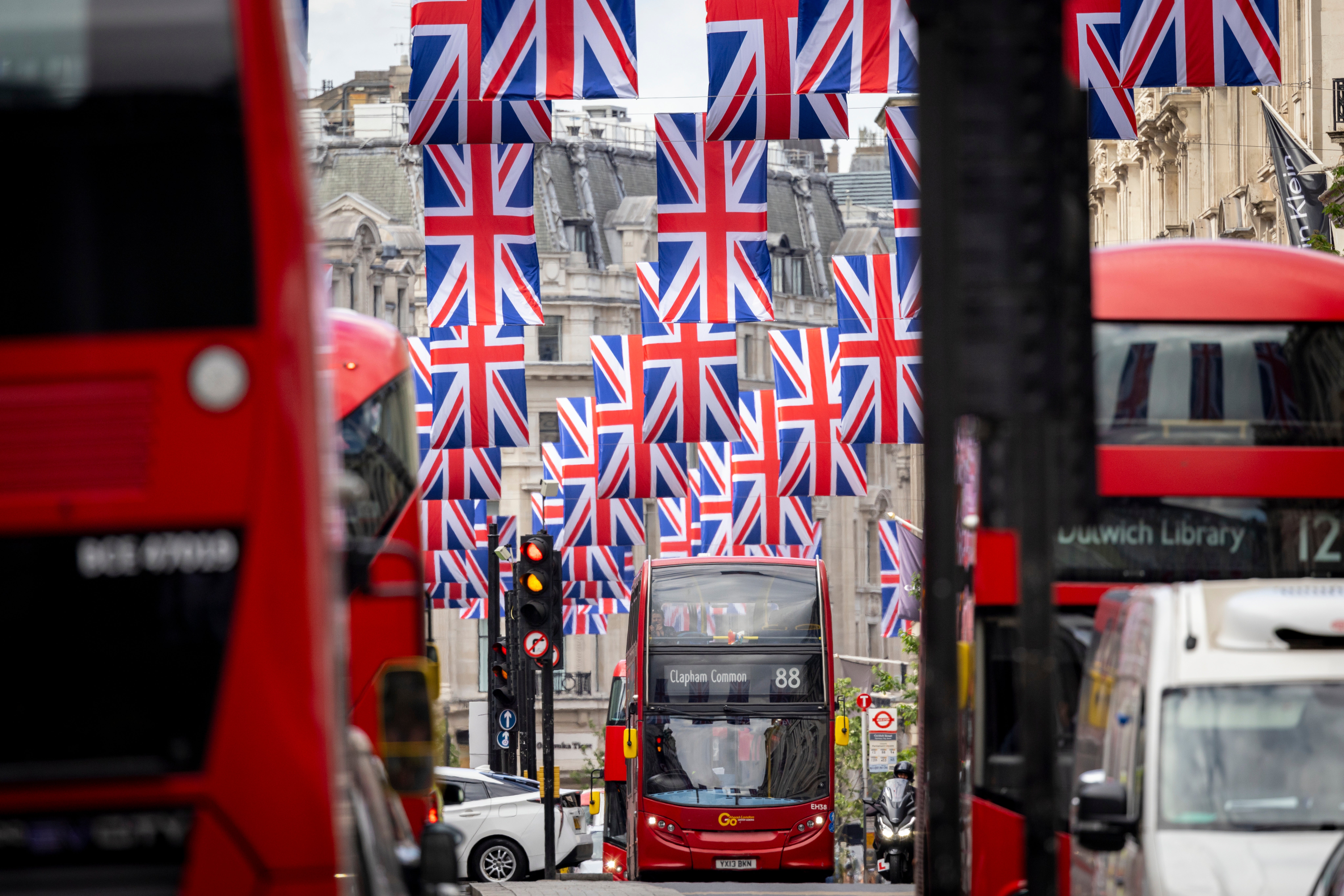Jubilee flags aren’t racist – but it’s no surprise people think so
The union jack and St George’s cross have become symbols of the far right, and groups that spew racial hatred towards Britain’s ethnic and religious minorities under the guise of patriotism


The festivities of the Queen’s platinum jubilee are upon us. Streets, homes and businesses are adorned with bunting and union jacks. I’ve been looking forward to the parties and themed nibbles, but I also can’t help but feel slightly apprehensive.
The display of flags on London’s Regent Street has sparked discussion on social media, with some Twitter users praising it as a celebration of Britishness. But others aren’t so impressed – and comparisons to the streets of 1930s Germany, which were often adorned with Nazi flags, have been made.
For some, the union jack is celebratory, patriotic and evokes a feeling of national pride, but for others, the display is hubristic and the flag is symbolic of elitism, colonialism and fascism.
While I wouldn’t be so quick to draw the latter conclusion, I can see how flags like the union jack are often co-opted by the far right, and how events like these invoke nationalistic attitudes which aren’t so kind to people who look like me.
I know that many other people of colour, including myself, cringe at the sight of the St George’s flag, which is displayed with gross pride by right-wing, racist groups such as the English Defence League and Britain First, as they spew racial hatred towards Britain’s ethnic and religious minorities under the guise of patriotism.
For many others, the union jack will invoke a similar feeling – it is a reminder of Britain’s bloody colonial past and current reality of racial inequality.
Events that stoke patriotism – such as jubilees and football finals – can quickly turn sour for people of colour in the UK. Take the Euros final in 2021, for example, where feelings of national pride and togetherness as we almost held the cup in our hands were overshadowed as abhorrent racism was directed at England players from ethnic minority backgrounds for simply missing a goal.
When events that are meant to signify national pride, community and togetherness end up with people of colour being subjected to racism, it serves as yet another reminder that we aren’t truly a part of the celebration and don’t really belong.
It’s also worth noting how the royal family themselves have been a symbol of Britain’s colonial and imperial history, from their involvement in the slave trade to allegations of racism towards Meghan Markle and her son, Archie. William and Kate’s recent tour in the Caribbean sparked more conversations about reparations for victims of slavery and imperialism. Also, no matter what anyone says, I don’t think the fact that Britain once ruled about a quarter of the world is anything to be proud of.
To keep up to speed with all the latest opinions and comment, sign up to our free weekly Voices Dispatches newsletter by clicking here
Flags and events on their own aren’t necessarily racist, but the symbolism and context around them can be. This symbolism is easily co-opted by those who have a very particular view of what they think Britain should look like.
On Twitter, as people debated patriotic imagery and its relationship with nationalism, there was a clear sense from some users that any criticism of the jubilee display was wrong and meant you hated Britain. While I’d say comparisons to Nazi Germany are slightly extreme, I don’t think it’s wrong to voice critical thoughts of such displays or the UK in general.
To point out what is going wrong in a country isn’t “unpatriotic” and doesn’t mean you “hate” the nation. I feel that it is time for us to recognise Britain’s colonial past and current inequalities and to truly learn from them, rather than burying our heads in the sand.
Patriotism isn’t about waving a union jack around and shouldn’t be about blind devotion to a nation despite its flaws. It should be about recognising what we’re doing wrong and fighting for change from our leaders in the hope of creating a better country for everyone.


